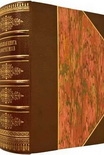Nature Noir, Jordan Smith [early reader chapter books .txt] 📗

- Author: Jordan Smith
Book online «Nature Noir, Jordan Smith [early reader chapter books .txt] 📗». Author Jordan Smith
By this time Estes had joined a tiny and virtually penniless Auburn anti-dam group calling itself Protect American River Canyons (PARC). He soon became PARC's resident technical wonk. His trespasser's intellect gave him an ability to digest voluminous reports in other people's disciplines, and his lack of steady employment made him reliable about showing up at public meetings. In May 1997 Estes and fellow PARC activists attended a meeting at which the Bureau made a presentation on its plans to restore the river at the Auburn Dam site. Estes left feeling excited. But two years later, with Doolittle's redesign under way and the tripartite support for the project in danger of losing one of its legs, the project had slowed to a crawl.
Estes the former paralegal now took up lawyering. Poking around in law libraries for something with which to dislodge Doolittle, Estes discovered the public trust doctrine. Simply stated, the doctrine dictated that no one had a right to keep the public from using a navigable waterway without demonstrating just cause or exigency. Estes reasoned that the American River was navigable by kayak and raft, but by virtue of the danger that whitewater boaters could be sucked into the diversion tunnel and drowned, the portion of the river through the dam site had been closed to them for thirty years. Yet no dam had been built to justify that exclusion. Bingo, thought Estes.
Protect American River Canyons' larger ally in the fight against Auburn Dam was the Sacramento environmental group Friends of the River. FOR employed a man by the name of Ron Stork. With his short, curly gray hair, wire-rimmed glasses, and button-down oxford cloth shirts, Stork looked less like an environmentalist than an aide to Doolittle or some other Republican legislator. By the early nineties he was well known as one of the deadliest weapons in the environmentalists' arsenal against dams. Stork shared Estes's facility with facts, figures, and technical language; he was a good public speaker and strategic political thinker; he was single and without children; and he was possessed of a mighty work ethic that often kept him late at the office. In 1992 Stork spent four months camped out in a Washington, D.C., home converted, with seven cots and a couple of couches, into a dormitory for environmental lobbyists. From there he and his fellow campers walked back and forth on Constitution Avenue to petition Congress successfully to defeat that year's Auburn Dam bill. He did the same thing again in 1996, and this time, for a few weeks, Estes joined him. The two men became friends. Always humble, Estes thought of Stork as the über Estes.
At the center of PARC were two tall, lanky men: Eric Peach and Frank Olrich. Peach had an upholstery shop in Auburn, and he was so tall he had to build a platform on which to put the chairs he reupholstered, so he wouldn't have to bend over. Olrich, an education consultant, had been a high school basketball star in Auburn. By 1998 Estes was discussing public trust doctrine with Olrich and Stork. The three had quietly begun consulting experts preparatory to suing the Bureau to force the latter to restore the river. Their first consultation was with a Sacramento lawyer who was an expert in the public trust doctrine. Encouraged by this meeting, Olrich placed a secret call to a Bureau official in Colorado for advice. The Bureau man's hobby happened to be kayaking, and the two men had become friends when they met while running a river in the Rockies.
"Off the record," the Bureau official told Olrich during this call, "you should sue us for access to the dam site under the public trust doctrine. You'll probably win."
At this point PARC and FOR suffered setbacks. First they couldn't come up with money to mount a major environmental lawsuit. Then, in the winter of 1999, Olrich died while crosscountry skiing with his wife. Making their way through deep snow in the mountains east of Auburn, they attempted to cross the transmountain railroad tracks by climbing through the deep trough left by the trains' snowplows. Olrich was unable to climb out in time to avoid being struck by a freight train. His wife survived.
The funeral was held on a cold, windy February day at the old cemetery above the railroad tracks in Auburn. A Native American shaman chanted over an open mahogany coffin in which Olrich's mangled remains had been covered with a mixture of cedar shavings and dried flowers. Dark-eyed juncos and white-crowned sparrows flocked through the graveyard around the mourners huddled in their overcoats and mountain parkas, as if coming to pay their last respects. The ceremony stopped briefly when a Union Pacific freight like the one that had killed Olrich thundered up the valley, drowning out the eulogy.
Meanwhile a new Democratic administration had taken over the California governorship. Searching for a deeper pocket to back their effort, Stork and Estes approached the state attorney general's office to see if it might want to be a party to a lawsuit; after all, the dam site was a state recreation area. "Yes," said their contact at the AG's office. "We're interested. Let's have a meeting."
When Stork and Estes walked into that meeting, they were astounded to have the very lawyer they'd been consulting on public trust doctrine introduced to them as the new acting chief of the attorney general's environmental law branch. Within weeks the Bureau of Reclamation received a letter from the attorney general saying the state had decided to





Comments (0)